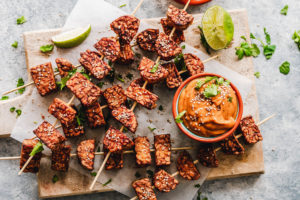Guest post by Laiba Khan
Veganism is a way of living where individuals abstain from consuming and using animal products. They avoid products with any animal by products in them. Becoming a vegan can be beneficial for our bodies, for stopping animal mistreatment and very importantly, for the good of the environment. Vegan diets can affect the lives of people all over the world because it is closely related to the environment. We can understand the complexities behind veganism like how will cattle farmers be affected if everyone turns to veganism and how some people prefer to be vegans and others do not.
First of all, most humans seem to think they are superior to all other species and therefore, entitled to exploit them. They think of themselves as powerful and assume to have control over other beings. Animals have the capacity of emotions, sensation, and, to varying degrees, self-consciousness. The property status of animals today ensures that they will not have justice and their interests will always come last. There is inequality between animals because people adopt some animals and eat others. All animals are sentient beings but animals get adopted because they are “desirable” and humans use them as ornaments. They are usually aesthetically pleasing, good companions, and affectionate. Similarly, they eat other animals because they provide nutrients, taste good, and, they think, are good for their health.
Humans have power over animals just because animals are not able to speak. Animals are also marginalized for the same reason. Numerous acts of violence and cruelty towards animals occur on a daily basis just to fulfill our clothing, eating, and entertainment desires.
Veganism is directly related, also, to environmental sustainability as raising cattle releases more greenhouse gases than all of the cars in the world, combined. Veganism is also related to both privilege and poverty as many people in developing countries do not even have food to eat let alone the choices they can make. They live in poverty and do not have the option of choosing their diets, instead they wonder where their next meal would come from. Since feeding farmed animals takes much more grain to keep people fed than if people eat the grains directly, really, meat is taking food out of the mouths of these poor people. Furthermore, there is intersectionality between veganism and feminism as both are oppressed in our society. For example, cows are routinely forcefully impregnated to be able to produce milk which is, in all senses, equal to sexual violence.
Among the important quotes you need to know is that “a person who follows a vegan diet produces the equivalent of 50% less carbon dioxide, uses 1/11th oil, 1/13th water, and 1/18th land compared to a meat-lover for their food.” To see more statistics, visit savepoppy.com/humanity and further references listed below this article.
Here is a list of fun vegan recipes to try at home.
Laiba Khan is a senior at Killarney Secondary School in Vancouver. She will be going to college after graduation to study Health Sciences. She is heavily involved with her school’s Environment Club where she helps do event planning for things like Bike to School week. She likes to play Soccer and Ultimate Frisbee.
Works Cited
“Meat and the Environment: Facts and Resources.” Toronto Vegetarian Association, 12 Apr. 2013
Nuwer, Rachel. “What Would Happen If the World Suddenly Went Vegetarian?” BBC News, BBC, 27 Sept. 2016
Siriano, Maria. “The 15 Recipes That Make Me Excited About Going Vegan” Kitchn, Apartment Therapy, LLC., 26 Jan. 2018
“The Sustainability Secret” COWSPIRACY
“The Vegan Society” The Vegan Society
Wang, George C. “Go Vegan, Save the Planet” CNN, Cable News Network, 9 Apr. 2017
Further evidence:
Photo by Tingey Injury Law Firm on Unsplash



